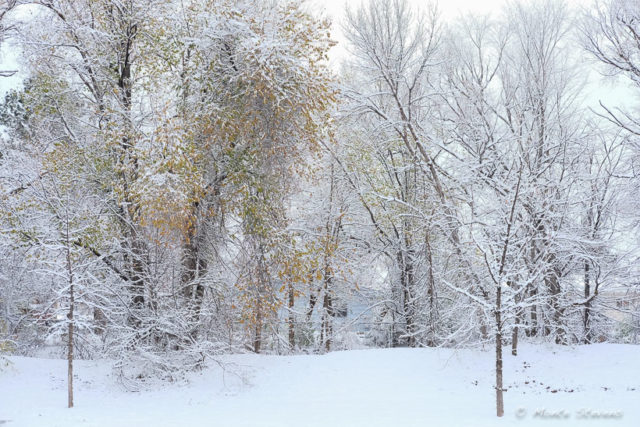
A couple images from yesterday’s snowfall. We received about 4 inches and now have to deal with the cold.
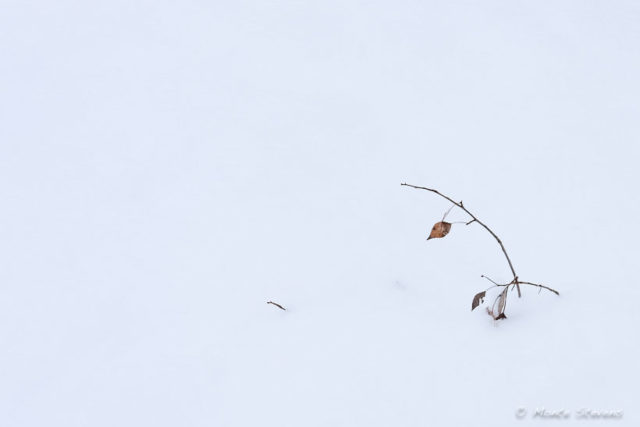
An online journal sharing my interests in photography, nature, coffee life, journaling, fountain pens, spirituality and asking deep questions.
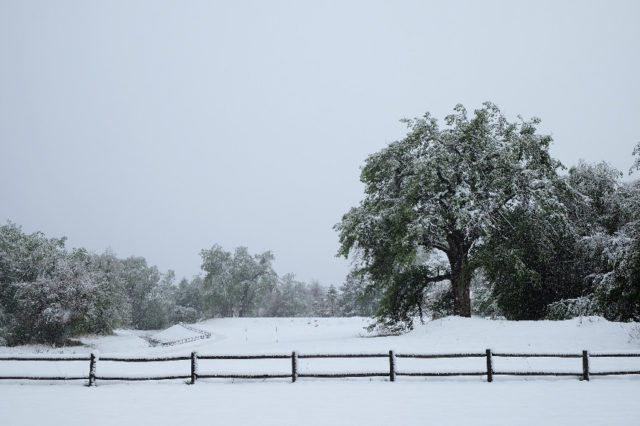
It has been snowing for that past 24 hours, a heavy wet spring snow. Schools closed down yesterday afternoon as the snow accumulation was much more than predicted. There was no need or desire to be out in the mess, so yesterday I sat in my condo reading and writing while listening to tree branches snapping and cracking. I took down the soup from the freezer and put it on the stove. Nothing better than a winter storm outside and the smell of soup cooking inside. This storm has brought some heavy damage to our trees.
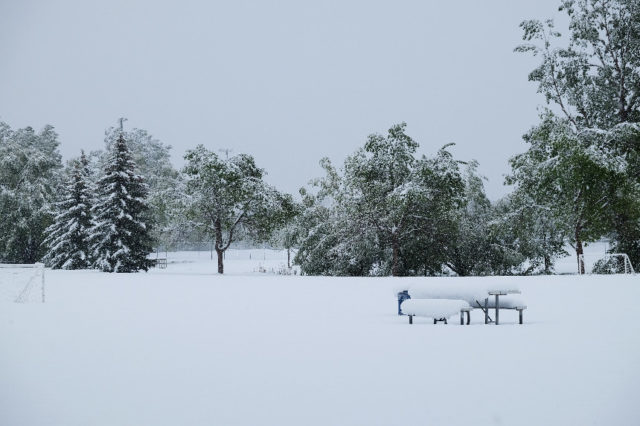
This morning I ventured to Rowland Moore Park in the interest of seeing how much damage to the trees. I was surprised to see only small to medium branches were broken and no trees down. But, I also could see the amount of snow accumulation on the picnic tables. I read this morning the snow accumulation on Fort Collins was 5 inches. However, I estimated 8 inches at my condo and by looking at this table that seems accurate.
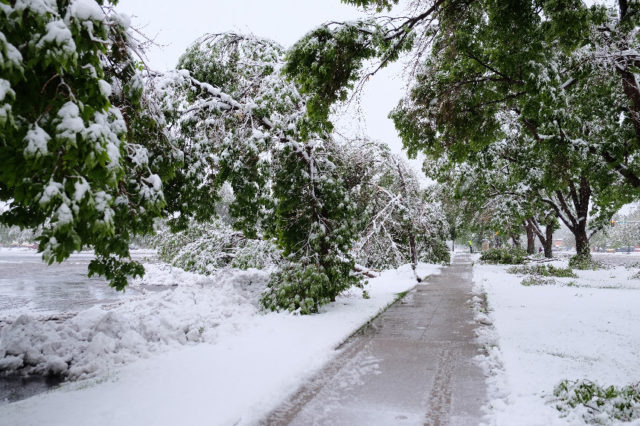
The campus at Colorado State University took some heavy damage. This sidewalk is along Shields Avenue on the west side of campus. I was shocked as I drove along and needed to stop a few images of the damage. In this image you can see multiple tree branches down and one tree completely uprooted and laying in the parking lot. Just around the corner from here was a massive tree that had come done and was on top a someones car. They are not going to be happy. 🙁
I would rather have a mind opened by wonder than one closed by belief.”
Gerry Spence
I do think getting out in the cold has a way of opening the mind and eyes. Taken at the Arapahoe Bend Nature Area about midmorning.
“…. the greatest goal we can set for ourselves is to use our painfully short lives in the best possible way.” – Guy Tal
A quiet winter snowfall is quiet for a couple of reasons. First snow does not reflect sound well, it absorbs it so that much of what you would normally hear is muffled. The pores in the snow cover are responsible for the quiet conditions. When acoustic waves travel horizontally above the snow, the increased pressure of the wave momentarily pushes some air into the pores. This air returns to the atmosphere after the wave passes, but some energy has been lost from friction and thermal effects. Over a short distance, this mechanism can significantly reduce the sound energy in the acoustic wave. Secondly, most animals seek shelter when it snows and therefore there are many less bird sounds immediately after a snow storm. I guess you could include a third reason, most people stay inside when it snows.